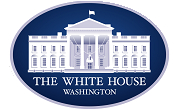Government/Policy

June 1, 2023
US Extends Section 232 Exemption for Ukrainian Steel
Written by Michael Cowden
The US will extend for another year an exemption for Ukrainian steel from Section 232 tariffs.
“The United States has provided a much-needed market for the steel that Ukraine is able to export,” Commerce Secretary Gina Raimondo said in statement on Wednesday, May 31.
![]() “In doing so, Americans are directly supporting the people of Ukraine, many of whom rely on Ukraine’s steel industry for their economic well-being,” she added.
“In doing so, Americans are directly supporting the people of Ukraine, many of whom rely on Ukraine’s steel industry for their economic well-being,” she added.
The US initially exempted Ukraine from Section 232 tariffs, 25% in the case of steel, on June 1, 2022, in response to Russian forces invading the country. Raimondo reiterated that the waiver was being continued in response to “Russia’s aggression.”
Ukraine is not a major steel supplier to the US, and the tariff waiver did not lead to a significant increase in imports from the war-torn nation, according to Commerce Department figures.
The US imported 132,130.3 metric tons of steel from Ukraine in 2022, up only 1% from 130,636 metric tons in 2021. More than 116,000 metric tons were oil country tubular goods (OCTG) and line pipe. Domestic consumers also brought in 10,241.5 metric tons of flat-rolled steel from Ukraine last year, all of it cut-to-length plate or plate in coils.
For context, the US imported approximately 6.22 million metric tons of steel from Canada last year, 4.81 million metric tons from Mexico, and 2.55 million metric tons from South Korea. Germany, the largest European steel supplier to the US, shipped 1.02 million metric tons to domestic ports in 2022.
Recall that Section 232 tariffs were implemented by the Trump administration in 2018. The Biden administration has kept them in place, although it has negotiated tariff-rate quota (TRQ) agreements to ease the tariffs with US allies in the European Union, Japan, and the United Kingdom.
By Michael Cowden, michael@steelmarketupdate.com







